As artificial intelligence reshapes the marketing landscape, professionals must adapt to remain relevant and deliver personalized experiences in a world of endless options.
The rise of artificial intelligence (AI) has been nothing short of revolutionary, permeating every industry and redefining how we live, work, and communicate. In content creation, AI tools have advanced to the point where they can generate articles, design graphics, produce videos, and even compose music. This technological leap raises an important question: What will happen to content creators in a world where AI can do it all?
Despite concerns, the future is not bleak for human creators. Instead, it presents an opportunity to evolve, innovate, and redefine the value that marketing professionals bring to the table. This article explores how creativity remains indispensable, how traditional marketing departments and agencies are poised to change, and how companies can stay relevant by leveraging personalization in an era of abundant choices. We will also highlight Marketing Trends for 2025: Key Focus Areas for Business Success, providing additional insights into the future of marketing.
The Irreplaceable Human Touch in Creativity
While AI excels at processing data and automating routine tasks, creativity remains a uniquely human trait. AI can generate content based on existing patterns, but it lacks the ability to infuse genuine emotion, cultural nuances, and the depth of human experience into its creations.

- Emotional Intelligence: Human creators understand context and can craft messages that evoke emotions.
- Cultural Relevance: Creators ensure content aligns with societal values and addresses current issues appropriately.
- Intuition and Experience: Human intuition, honed by experience, guides creators in making decisions that resonate with audiences on a deeper level.
- Storytelling: Humans excel at weaving narratives that captivate and inspire audiences.
The Illusion of Effortless Content Creation with AI
Many people believe they can create effective content without knowledge or experience, relying solely on AI tools. However, while AI can assist in content generation, it cannot replicate the intuition and expertise of experienced professionals.
- Lack of Strategic Insight: Without a solid understanding of marketing principles, AI-generated content may lack strategic direction.
- Quality Over Quantity: AI can produce content rapidly, but without human oversight, the quality and relevance may suffer.
- Authenticity Matters: Audiences can distinguish between generic content and authentic messaging crafted by knowledgeable creators.
Key Takeaway: The combination of AI with the experience, knowledge, and intuition of seasoned professionals is what will differentiate successful marketing in the coming months.
Transformation of Traditional Marketing Departments and Agencies
The advent of AI is set to transform traditional marketing structures, leading to new roles and collaborative opportunities between humans and machines.
Evolving Roles of Creators
- Graphic Designers: AI assists with design suggestions and automates repetitive tasks, enabling designers to focus on originality.
- Content Creators: Writers use AI for research and initial drafts, refining content with their unique voice and insights.
- Photographers and Videographers: AI aids in editing and enhancing visuals, but the creative direction remains human-led.
- Community Managers: AI tools help monitor engagement metrics, but human managers build genuine relationships.
- Product Managers: AI provides market insights, informing product development and marketing strategies.
Embracing AI Agents
Marketing teams must adapt by:
- Upskilling: Training staff to effectively use AI tools.
- Collaborative Workflows: Developing processes where AI handles data-heavy tasks, and humans focus on strategy and creativity.
- Interdisciplinary Teams: Combining technical experts with creative professionals for holistic marketing approaches.
Personalized Marketing in a Competitive Landscape
With consumers facing more choices than ever, personalization becomes crucial.
- AI-Driven Personalization: Tailoring content and offers to individual preferences using AI analytics.
- Human Oversight: Ensuring that personalized experiences are meaningful and ethically designed.
- Dynamic Strategies: Continuously adapting marketing efforts based on AI-generated insights and human creativity.
Marketing Trends for 2025: Key Focus Areas for Business Success
To remain competitive, businesses must stay ahead of emerging trends. Here are key focus areas for success in 2025:
1. Advanced Artificial Intelligence and Automation
- Personalization at Scale: AI enables highly tailored customer experiences.
- Process Automation: Automating tasks frees up resources for strategic planning.
Tip: Incorporate AI technologies and train teams to leverage them effectively.
2. Augmented and Virtual Reality Experiences
- Immersive Interaction: AR and VR offer innovative ways to engage customers.
- Enhanced Storytelling: Create memorable brand experiences.
Tip: Explore AR and VR to differentiate your brand.
3. Sustainability and Social Responsibility
- Green Marketing: Emphasize sustainable practices.
- Ethical Transparency: Build trust through honest communication.
Tip: Integrate sustainability into your business model authentically.
4. User-Generated Content (UGC) and Online Communities
- Active Participation: Encourage customers to create and share content.
- Community Building: Foster engagement through online forums.
Tip: Motivate customers to share experiences and build community.
5. Voice Search and Virtual Assistants
- Conversational SEO: Optimize content for natural language queries.
- Brand Presence: Develop skills for virtual assistants like Alexa or Google Assistant.
Tip: Revise SEO strategies to include voice search optimization.
Additional Points for Future Success
Embracing Diversity and Inclusion
- Global Perspectives: Diverse teams bring varied insights, enhancing creativity.
- Inclusive Marketing: Craft messages that resonate with a broader audience.
Tip: Foster an inclusive environment to drive innovation.
Data Privacy and Security
- Regulatory Compliance: Adhere to data protection laws like GDPR.
- Consumer Trust: Protect customer data to build loyalty.
Tip: Implement robust data security measures.
The Rise of Micro-Moments
- Immediate Needs: Consumers seek quick answers; be present in micro-moments.
- Mobile Optimization: Ensure content is accessible on mobile devices.
Tip: Optimize for on-the-go consumers.
Emotional Branding
- Brand Loyalty: Build deep emotional connections with customers.
- Authentic Storytelling: Share genuine stories that reflect brand values.
Tip: Develop branding strategies that evoke strong emotions.
Collaborative Marketing
- Partnerships: Collaborate with other brands for mutual benefit.
- Co-Creation: Involve customers in product development and marketing campaigns.
Tip: Leverage partnerships to expand reach and innovation.
Remaining Relevant as Marketing Companies, Agencies, or CMOs
To stay indispensable, marketing professionals must leverage AI while emphasizing uniquely human skills.
Strategic Leadership and Vision
- Innovation Leadership: Pioneer AI integration aligned with company vision.
- Ethical Considerations: Guide AI use to respect privacy and promote transparency.
- Long-Term Planning: Balance immediate benefits with sustainable growth.
Deepening Client Relationships
- Personal Touch: Maintain human interaction to build trust.
- Customized Services: Offer bespoke solutions for client challenges.
- Feedback Loops: Incorporate client feedback for continuous improvement.
Nurturing Creativity and Innovation
- Continuous Learning: Stay updated on industry trends and AI advancements.
- Creative Freedom: Encourage experimentation and original ideas.
- Thought Leadership: Share insights through publications and industry events.
The Role of Photographers and Videographers
- Elevating Visual Content: With the proliferation of visual platforms, high-quality photos and videos are more important than ever.
- AI-Assisted Editing: Use AI tools for efficient editing, allowing more time for creative planning and shooting.
- Story-Driven Visuals: Focus on storytelling through visuals to create deeper connections with audiences.
- Personal Branding: Photographers and videographers can build personal brands, showcasing their unique styles and attracting clients seeking authenticity.
Tip: Embrace new technologies while honing your artistic skills to offer unparalleled visual experiences.
The rise of AI in content creation heralds a new era of opportunity for marketing professionals. Human creativity, strategic thinking, and emotional intelligence are irreplaceable assets that, when combined with AI, can propel the industry forward.
Many believe that AI alone can suffice in creating effective content without the need for knowledge or experience. However, this overlooks the critical role of human intuition and expertise. The combination of AI with the experience, knowledge, and intuition of seasoned professionals is what will differentiate successful marketing in the coming months.
Marketing departments and agencies must embrace AI as a collaborator rather than a competitor. By integrating AI tools with human expertise, focusing on personalization, and fostering strong client relationships, they can deliver exceptional value in a crowded marketplace.
Now is the time to innovate and prepare for a future where marketing is more interconnected and customer-centric than ever. Companies that balance technological advancements with the human touch will not only remain relevant but will lead the way in an increasingly AI-driven world.

